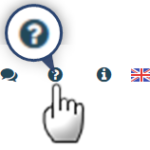The KC is only accessible to known users through….
your ubiTT account (if you are client)
and click on the ‘?’ icon in the top right-hand menu.

your credentials (only for non ubiTT users)
You want to access our KC and you don’t have a ubiTT account?
You need to access some documentation for testing purposes?
We need to know more about you in order to grant you access:
